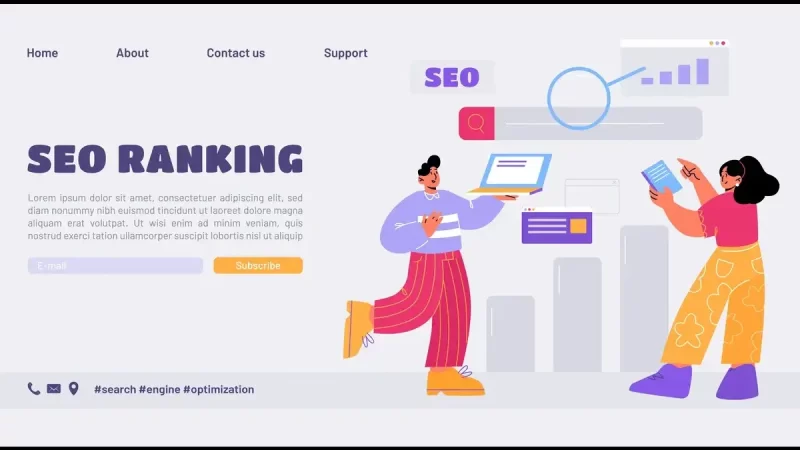Google Search Experiment: Near Me Queries Show Only Local Listings

Local search has become an integral part of our daily lives, helping us find nearby businesses, services, and attractions with just a few clicks or taps. Google, being the dominant search engine, continuously strives to improve the local search experience for its users. One of the latest experiments conducted by Google aims to refine the search results further by displaying only local listings for specific queries. In this article, we delve into the details of this experiment, its potential impact, and what it means for both users and businesses.
What Does Google’s Experiment Involves?
Google’s experiment involves showing only local listings in search results for certain queries tagged with “Near Me” or similar location-based keywords. Instead of displaying a mix of local and non-local results, the search engine focuses solely on businesses and services within the user’s vicinity. For instance, if a user searches for “coffee shop near me” or “plumber near me,” Google will show listings of coffee shops or plumbers located nearby, omitting non-local results altogether.
Impact on User Experience:
This experiment is aimed at enhancing user experience by providing more relevant and localized search results. By eliminating non-local listings, Google aims to streamline the search process for users looking for nearby businesses or services. This can be particularly beneficial for mobile users who often rely on quick and accurate information while on the go. With local listings taking precedence, users can find what they need more efficiently, reducing the need to sift through irrelevant results.
Improved Accessibility:
The focus on local listings also enhances accessibility, especially for users with disabilities or mobility issues. By prioritizing nearby businesses and services, Google ensures that users can easily find relevant options within their vicinity, minimizing the barriers to accessing essential services. This aligns with Google’s commitment to inclusivity and making information universally accessible.
Potential Challenges:
While the experiment aims to improve the local search experience, it may pose some challenges for businesses, particularly those located in competitive markets. With non-local listings omitted from certain search results, businesses outside the immediate vicinity may find it harder to reach potential customers. This could impact their online visibility and lead to a decrease in web traffic and customer inquiries.
However, it’s essential to note that Google’s algorithm considers various factors when determining search rankings, including relevance, proximity, and prominence. Businesses can still improve their local SEO strategies to enhance their visibility in local search results, even within the constraints of this experiment.
Local SEO Strategies:
For businesses aiming to maintain or improve their visibility in local search results, optimizing their local SEO strategies is crucial. This includes:
- Claiming and optimizing Google My Business (GMB) listings with accurate information, including business hours, contact details, and location.
- Ensuring consistency across online directories and platforms to reinforce business information and credibility.
- Generating positive reviews and responding promptly to customer feedback to enhance reputation and trustworthiness.
- Creating locally relevant content, such as blog posts or landing pages tailored to specific geographical areas or communities.
- Leveraging structured data markup to provide search engines with detailed information about the business, such as product offerings, services, and events.
By implementing these strategies, businesses can improve their chances of appearing in local search results and attracting nearby customers, regardless of Google’s experimental changes.
Google’s experiment to display only local listings for certain “Near Me” queries reflects its ongoing efforts to refine and personalize the search experience for users. While the experiment may pose challenges for some businesses, it also presents opportunities for those who prioritize local SEO and provide value to customers in their vicinity. By optimizing their online presence and embracing the evolving landscape of local search, businesses can continue to thrive and connect with their target audience effectively.
FAQs: Google’s Local Search Experiment
Google’s local search experiment focuses on refining search results for queries tagged with location-based keywords like “Near Me.” The experiment involves displaying only local listings in search results, omitting non-local results altogether.
For specific queries such as “coffee shop near me” or “plumber near me,” Google will show listings of businesses and services located nearby, excluding non-local results. This aims to provide users with more relevant and localized search results.
The primary purpose of the experiment is to enhance user experience by streamlining the search process for nearby businesses and services. By prioritizing local listings, Google aims to help users find what they need more efficiently, especially on mobile devices.
Non-local businesses may experience some impact as their listings will be omitted from certain search results for location-specific queries. However, businesses can still improve their local SEO strategies to maintain or improve their visibility in local search results.
Businesses can optimize their online presence for local search by claiming and optimizing their Google My Business (GMB) listings, ensuring consistency across online directories, generating positive reviews, creating locally relevant content, and leveraging structured data markup.







